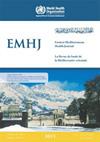埃塞俄比亚沙眼倒睫患者拒绝上眼睑矫正手术决定因素的病例对照研究
IF 1.9
4区 医学
Q3 HEALTH CARE SCIENCES & SERVICES
引用次数: 0
摘要
背景:沙眼衣原体反复感染会导致沙眼性倒睫(TT)。手术是主要和首选的治疗方法。然而,尽管附近的医疗机构提供免费服务,许多人还是拒绝手术。目的:确定埃塞俄比亚 TT 患者拒绝手术的决定因素。方法:这是一项基于社区的病例对照研究:这项基于社区的病例对照研究于 2018 年 10 月 5 日至 12 月 17 日在 338 名病例和 338 名对照者中进行。我们采用系统随机抽样的方法,从登记文件中选取已接受手术者(对照组)和拒绝手术者(病例组),并使用预先测试、访谈者管理的结构化问卷进行数据收集。我们使用 SPSS 23 版对数据进行了分析,并使用多元逻辑回归来确定决定因素。结果曾目睹不良手术结果[调整后的几率比(aOR):3.51,95% CI:1.94-6.35]和缺乏 TT 相关知识(aOR:1.77,95% CI:1.18-2.65)会增加手术的拒绝率。对外科医生的信任(aOR:0.26,95% CI:0.15-0.45)、对眼睑手术的了解(aOR:0.32,95% CI:0.16-0.64)、倒睫持续时间长(aOR:0.50,95% CI:0.31-0.79)、通过与外科医生讨论做出决定(aOR:1.77,95% CI:1.18-2.65)会增加手术的拒绝率。79)、通过与家人讨论做出决定(aOR:0.29,95% CI:0.13-0.64)、频繁脱毛(aOR:0.31,95% CI:0.17-0.60)以及接受个人建议(aOR:0.11,95% CI:0.04-0.28)均可降低拒绝率。结论拒绝 TT 手术与对上眼睑手术的了解、以往的手术结果、决策能力和个人影响因素有很大关系。埃塞俄比亚应建立更完善的上眼睑手术系统,以更好地管理和减少不利的手术结果,并降低手术拒绝率。本文章由计算机程序翻译,如有差异,请以英文原文为准。
Case–control study of determinants of corrective upper eyelid surgery refusals among trachomatous trichiasis patients in Ethiopia
Background: Repeated infection with Chlamydia trachomatis causes trachomatous trichiasis (TT). Surgery is the main and preferred method of treatment. However, many people decline surgery despite the availability of free services in nearby health facilities. Aims: To identify the determinants of surgery refusal among TT patients in Ethiopia. Methods: This community-based, case–control study was conducted among 338 cases and 338 controls from 5 October to 17 December 2018. Using systematic random sampling, we selected people who had been operated on (controls) and those who refused surgery (cases) from registration documents and used a pre-tested, interviewer-administered, structured questionnaire for data collection. We used SPSS version 23 to analyse the data and used multivariate logistic regression to identify the determinants. Results: Having witnessed a poor surgical outcome [adjusted odds ratio (aOR): 3.51, 95% CI: 1.94–6.35] and lack of knowledge about TT (aOR: 1.77, 95% CI: 1.18–2.65) increased the refusal rate for surgery. Having trust in the surgeon (aOR: 0.26, 95% CI: 0.15–0.45), knowledge about eyelid surgery (aOR: 0.32, 95% CI: 0.16–0.64), long duration of trichiasis (aOR: 0.50, 95% CI: 0.31–0.79), decision-making via discussion with the family (aOR: 0.29, 95% CI: 0.13–0.64), frequent epilation (aOR: 0.31, 95% CI: 0.17–0.60), and receiving personal advice (aOR: 0.11, 95% CI: 0.04–0.28) reduced refusal rates. Conclusion: Refusing to have TT surgery was significantly related to knowledge about upper eyelid surgery, past surgical outcomes, decision-making capacity, and personal influences. Improved systems for upper eyelid surgery should be established in Ethiopia to better manage, and reduce unfavourable, surgical outcomes, and reduce surgery refusal.
求助全文
通过发布文献求助,成功后即可免费获取论文全文。
去求助
来源期刊

Eastern Mediterranean Health Journal
HEALTH CARE SCIENCES & SERVICESPUBLIC, ENV-PUBLIC, ENVIRONMENTAL & OCCUPATIONAL HEALTH
CiteScore
3.30
自引率
4.80%
发文量
112
期刊介绍:
The Eastern Mediterranean Health Journal, established in 1995, is the flagship health periodical of the World Health Organization Regional Office for the Eastern Mediterranean.
The mission of the Journal is to contribute to improving health in the Eastern Mediterranean Region by publishing and publicising quality health research and information with emphasis on public health and the strategic health priorities of the Region. It aims to: further public health knowledge, policy, practice and education; support health policy-makers, researchers and practitioners; and enable health professionals to remain informed of developments in public health.
The EMHJ:
-publishes original peer-reviewed research and reviews in all areas of public health of relevance to the Eastern Mediterranean Region
-encourages, in particular, research related to the regional health priorities, namely: health systems strengthening; emergency preparedness and response; communicable diseases; noncommunicable diseases and mental health; reproductive, maternal, child health and nutrition
-provides up-to-date information on public health developments with special reference to the Region.
The Journal addresses all members of the health profession, health educational institutes, as well as governmental and nongovernmental organizations in the area of public health within and outside the Region.
 求助内容:
求助内容: 应助结果提醒方式:
应助结果提醒方式:


